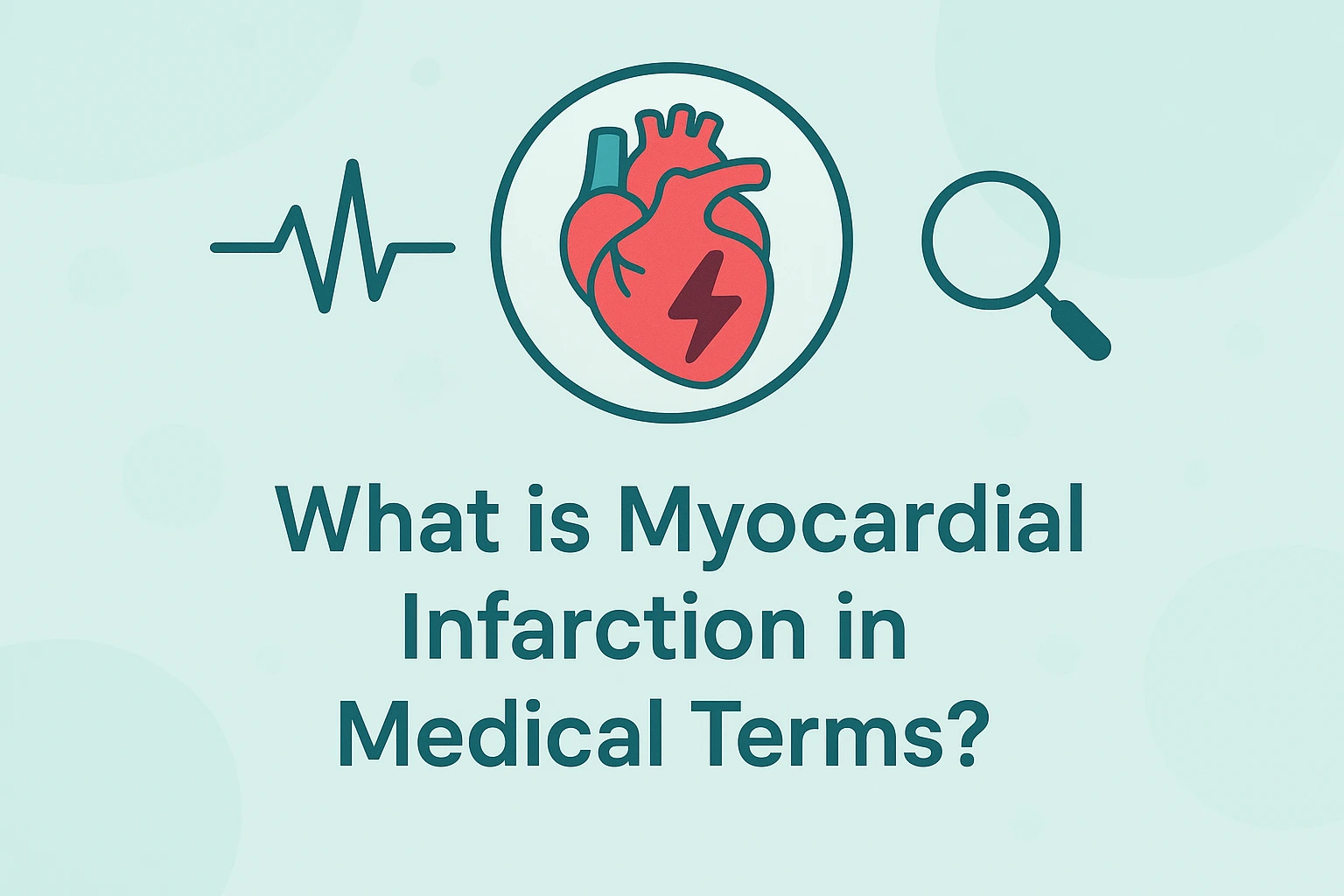Myocardial Infarction (MI), commonly known as a heart attack, occurs when blood flow to a part of the heart muscle is blocked for an extended period, causing damage or death to the affected heart tissue. The blockage typically happens due to the buildup of plaque (a combination of fat, cholesterol, and other substances) in the coronary arteries, which supply oxygen-rich blood to the heart. When the plaque ruptures, a blood clot forms, further obstructing blood flow.

Types of Myocardial Infarction:
- ST-Elevation Myocardial Infarction (STEMI): A severe form of heart attack characterized by a significant blockage in a coronary artery, typically visible on an electrocardiogram (ECG) as an elevated ST segment.
- Non-ST-Elevation Myocardial Infarction (NSTEMI): A less severe form, where the blockage is partial or temporary, but still causes damage to the heart muscle.
If you experience chest pain or other symptoms of a heart attack, it is critical to seek emergency medical attention immediately to improve outcomes and prevent further complications.
Symptoms of Myocardial Infarction
Symptoms of myocardial infarction include: recognising these signs is vital for timely action.
- Chest pain or discomfort
- Shortness of breath
- Nausea or vomiting
- Cold sweat
- Pain in the arms, back, neck, or jaw
Causes of Myocardial Infarction
Common causes and risk factors for myocardial infarction include: these often involve reduced blood flow to the heart muscle.
- Coronary artery disease
- High blood pressure
- High cholesterol levels
- Diabetes
- Smoking
When to See a Doctor Myocardial Infarction?
Seek medical advice for possible myocardial infarction if: you experience chest pain, fainting, or confusion. These symptoms require immediate attention, especially if severe or persistent.
Related Terms of Myocardial Infarction
FAQs for Myocardial Infarction
When should I go to the ER for myocardial infarction?
If you experience severe chest pain, shortness of breath, or other alarming symptoms, seek emergency care immediately.
Can heat and dehydration affect heart health in the UAE?
Yes, extreme heat and dehydration can strain the heart, especially during long-haul flights or fasting periods.
How can I reduce my risk of myocardial infarction?
Maintaining a healthy lifestyle, including regular exercise and a balanced diet, can help lower risk factors.
